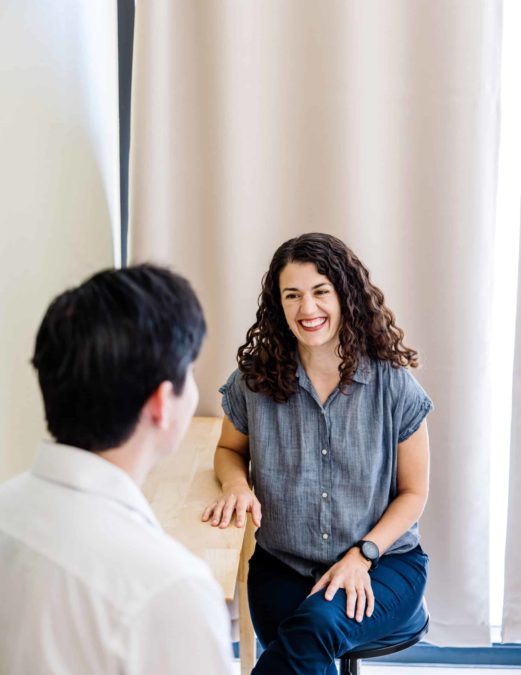Many of us want some aspects of our lives to be different.
Are you content? Are you happy with your health, relationships, and work?
It can be really challenging to make changes that stick. On the one hand, we would like to be stronger and healthier; on the other hand, even the habits that cause (dis)ease can be comforting. We might want to be healthier, and we might know that too much sugar is bad, but that does not stop the chocolate cake from tasting delicious and making us happier, albeit momentarily. A habit is a behavior that we repeat until it becomes automatic, usually one where there is a cue, an action, and a reward. Feel hungry, eat cake, feel good, repeat.
Changing our habits can feel challenging and uncomfortable. This morning I listened to a TED Talk (Judson Brewer’s TED Talk) that described the physiological truth that our brains cannot distinguish between good habits and bad habits. When we repeat behaviors, we send a message to our brains to remember the pattern and repeat it again. In this way it becomes easier to repeat what we have already done. If that habit is to eat chocolate cake or go for a run, it doesn’t matter to our brains. Repetition feeds repetition.
In my work as a health coach, I often see my clients express a clear desire for change, along with reasons for why. And yet, even knowing why we want to change sometimes is not enough to make a lasting shift. If our focus remains on what should be different rather than what we need to do differently, then we’re probably not changing much. For instance, I have wanted to meditate regularly for over a decade. I wanted to meditate because I believed it would help me to be more aware, intentional, and resilient. I wanted to meditate and feel the benefits of doing so but then struggled to actually start or maintain a practice. I was focusing on a desire to change at some point, rather than what I needed to do, right now, to make it possible for me to meditate daily. By shifting my focus to my own actions, getting curious, and experimenting, I have successfully begun a meditation practice. My health coach training at Duke Integrative Medicine was instrumental in supporting this shift. I believe that anyone can achieve what they want. However, to bridge the gap between wanting a change and living it, you will need to focus on your actions, practice an attitude of “doing it now,” and get really curious about yourself.
This shift in focus is empowering. When we pay attention to what we do on a daily basis and get curious about why we make the choices we do, doors open to choosing differently. Here are three simple steps to help you do this:
- Clarify what you want to be different. Write it down and get curious about why you desire the change. Wanting to reduce your cholesterol levels is reasonable; however, wanting to decrease your risk of heart attack so as to increase the chances of a longer life to spend with your family is a more compelling reason.
- Focus on what is within your control. Write down every aspect you have 100 % control over that can help you achieve your goal. Then experiment with one variable at a time. This staves off discouragement. Cultivate curiosity and playfulness as you do this, as it will help you to be more creative and effective. For my meditation practice this looked like: 1) Journal how I am spending my time to see when I could meditate, 2) Set an alarm reminder, 3) Ask for support from my family, 4) Experiment with different forms of meditation, 5) Track when I do meditate, 6) Set exciting goals for myself, and 7) Create a specific spot for meditation.
- Do it right now. Start now. Write down what you want to do, choose a day to begin, and do it. Procrastinate procrastination. Just as you can put off changing your habits, so you can put off procrastination itself. Commit to the habit you are trying to create, and begin it right away.
Ultimately, wanting to be different requires acting differently. By focusing on how you act in ways that bring you to where you want to be, you build your own bridge to the future you are dreaming of.
This post was written by Ariana Figueroa, NBC-HWC. Ariana is Integrative Family Medicine of Asheville’s Integrative Health Coach. You can learn more about Integrative Family Medicine of Asheville, and how we do medicine differently, by visiting our website!

